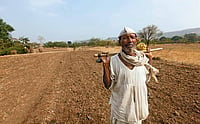
Dragon in the room
On my trip to Taiwan, as part of a group of international journalists here to study their efforts to cut down carbon emissions, recycle waste and promote green energy, we sat through numerous presentations (some very impressive too) and wondered where the catch lay. Taiwan (or Republic of China) has been trying to get an observer’s post at the UN Framework Convention on Climate Change (UNFCCC), a given for most countries, including India. Despite their best efforts (though I wonder if best efforts are the key to this firmly-locked door), they haven’t managed to. They are represented by research institutes, NGOs (which seemed completely in sync with the government) and some prominent manufacturers. While they tried their best to restrict conversations to science and technology, the dragon in the room was politics and relationship with big brother, the People’s Republic of China.
Despite several references to the need for “meaningful participation” at the UNFCCC, it was only when Joseph S.C. Hua from the Mainland Affairs Council articulated the pressures from across the strait that the issue received the attention it deserved. When asked if a separate observer’s status meant consolidating its identity as a separate nation, the officials spoke only of the need to be part of UNFCCC if Taiwan must continue its economic growth coupled with the objective of ensuring low carbon emissions—for its own good and of the world at large of course. Adding to its woes is the new trade agreement between China and South Korea, its principal rival in exports to China.
Swachh Taiwan Abhiyan
Now this one is a clear winner. Taiwan, despite being the world’s second most densely populated country (of which 60 per cent is forest and most of the 23 million population lives on the rest of the land), has managed to inculcate the habit “no littering” in its population. Since 2000, not only does the government encourage and help recycling its waste, the garbage bags are chargeable and provided by the government. Garbage has to be disposed in these bags, leading to lesser amount of garbage and better monitoring. Officials say it took a decade but the efforts start at schools, where children are taught the goodness of cleanliness and recycling. With no garbage bins in public places and no garbage either, one must laud the efforts. They also serve tea, water in porcelain/ceramic cups and glasses instead of disposable plastics. Often the toilets are Asian and Western, thus ensuring saving of water. Solar panels, refurbished furniture, the works. What struck me was a blanket, fluffy as fluffy can be, made entirely of recycled plastic bottles.
To bike or not to bike
Taiwan is one of the leading producers of high-end bicycles, apart from other electronic components. Taipei city has dedicated cycle tracks, and they are not encroached upon. However, what is bothering the authorities is the increasing dependence on motorcycles. Taiwan has the highest density of motorbikes in the world (and a worrying ratio of 1.7 motorbikes per person) and is trying to bring it down. But one look at any of the roads around rush-hour time and you see a sea of motorbikes—in all shapes and sizes, especially small, user-friendly ones with the most colourful helmets ever. Although they seem to have a decent public transport system, the craving to own your own two-wheeler seems overwhelming. Maybe it is just another facet of urbanisation? Of the 800,000 hectares of cultivable land, 200,000 ha lies idle and people are rather more interested in the factories and the cities. The government is trying to “revive” the land but without a simple measure such as minimum support price for the produce, I wonder how that can be done.
Cutting chai beer
Must confess that initially we had the local beer as it was on the house, unlike non-Taiwan brands. But the lager, served in a tiny glass like that of cutting chai in Mumbai, grew on us so much that we refused to wash down the innumerable seafood platters, including the famous stinky tofu, with anything else but Taiwanese beer and sake. Even the pork buns at the lively night markets. We may have observed that as a ritual, but the real tradition is the Tea Ceremony, which we got to witness at a special tea house atop a hill. Complete with a separate set of pots to brew the tea, and different cups to smell the aroma and then to drink the tea (which were heated to ensure the tea stays warm), the experience was a delight for tea lovers. And then there was the ubercool tea house at the world’s tallest green building—Taipei 101—complete with the most exquisite gold and white tea pots, Assam tea and western classical music. Did anyone say globalisation?
Did you know...
Sixteen teams from the Fifa World Cup used T-shirts made from recycled material that were produced in Taiwan?
Prachi Pinglay-Plumber is an Assistant Editor with Outlook; E-mail your diarist: prachi [AT] outlookindia [DOT] com
























